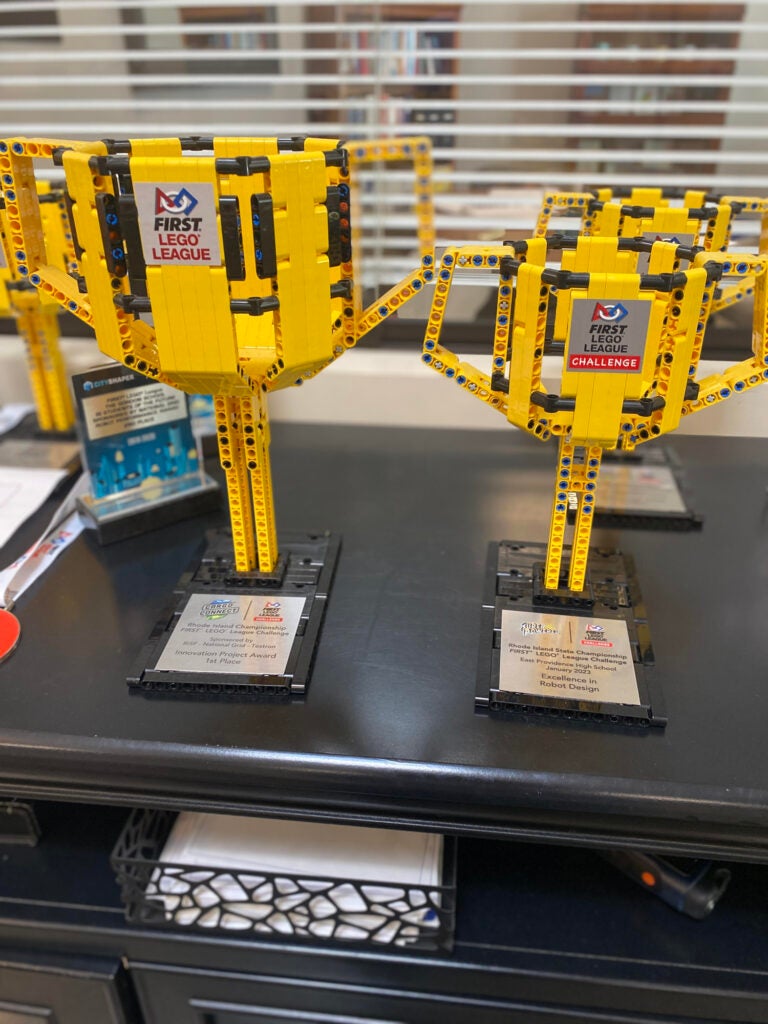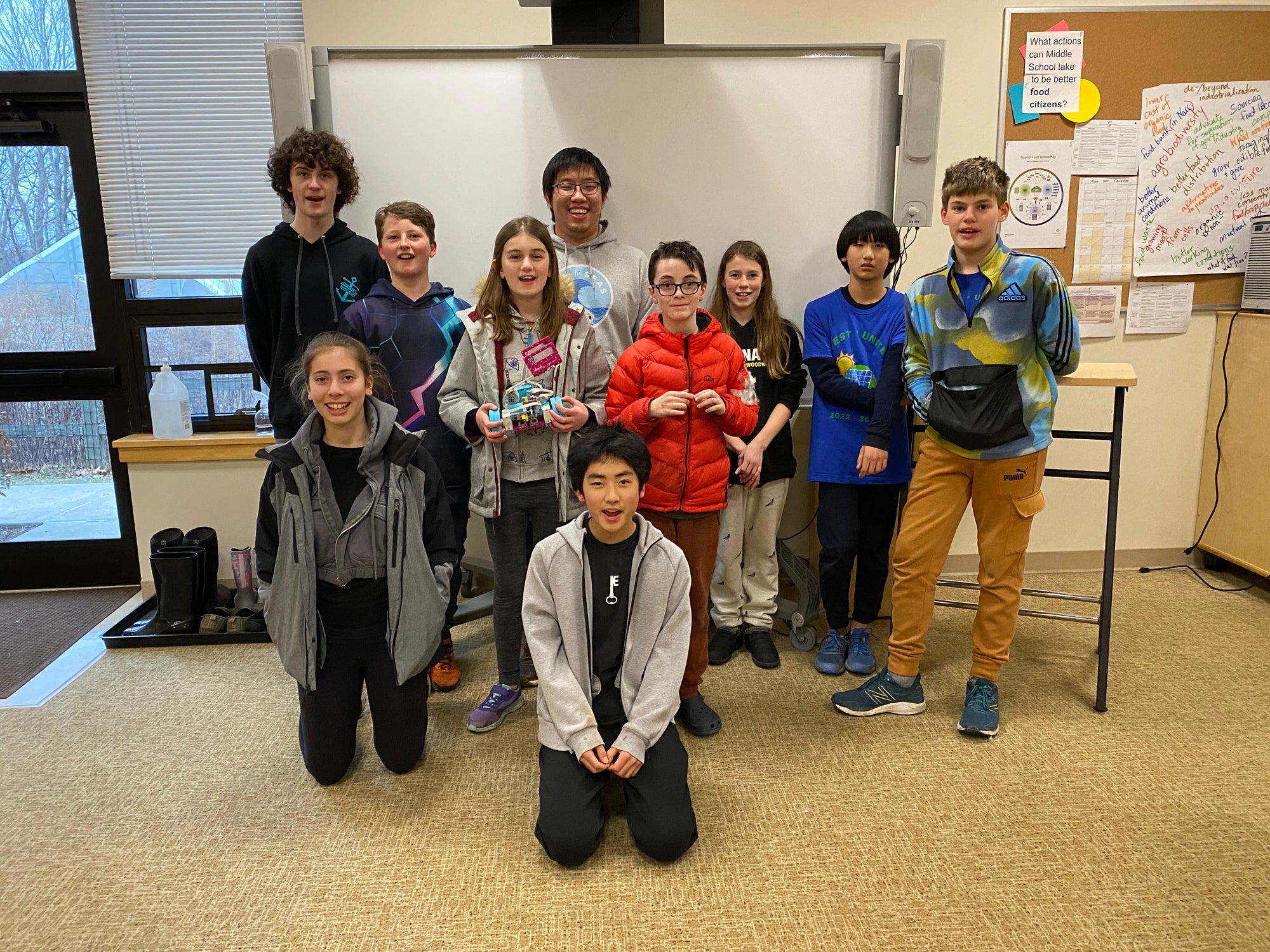KINGSTON, R.I. – April 4, 2023 – When the robots call, it’s best to say yes.
That’s what University of Rhode Island Ph.D. candidate Alexander Yin (of North Kingstown) did when Quest Montessori School in Narragansett put out a call for a robotics coach for its First® LEGO® League Challenge team in 2021.
Yin couldn’t resist the chance to share his love of robotics and exploration with young students while adding the title of “coach” to his resume. Yin has helped coach a winning team of middle school students at the Quest Montessori School for the annual First® LEGO® League competition for the past two years. Last year the team qualified for the state championship by taking first place in Robot Design at the regional level and then went on to win the Innovation Project award at the state meet. The team again qualified for the Rhode Island meet this year and walked away with the Excellence in Robot Design award.

Yin’s specialty is “soft robotics” in the undersea environment; he’s in his fourth year pursuing his doctorate at the Narragansett Bay Campus. Interested in doing more community outreach beyond the Graduate School of Oceanography, he found a place to share his expertise at Quest Montessori on Boston Neck Road, Rhode Island’s only accredited Montessori school; the woodsy campus is just a mile from the Bay Campus.
Yin’s expertise certainly helped the team win additional awards, including Excellence in Core Values at this year’s regional competition.
Says Katherine Bowen, head of school at Quest, “Alex has become an integral part of the Quest team. He engages with the students in a manner that allows them to make their own decisions, problem-solve, and learn from their mistakes. Alex’s focus on the process as opposed to the end goal of winning is a fundamental element of Montessori education. Our students love him.“
Yin is a research assistant in the University’s Undersea Robotics and Imaging Laboratory, which specializes in creating novel systems for oceanographic research and deep-sea exploration. The team uses robots to conduct research around the world, gathering photos and data from remote, unexplored undersea environments.
Growing up, Yin was inspired by great inventors like Leonardo Da Vinci and Nikola Tesla, and for these reasons decided to become a mechanical engineer. Now his focus is on deep sea robotics with a special interest in “bio-inspired and bio-mimetic” (nature-emulating) designs. “There is much for us to learn from nature such as animals and plants,” he says. He hopes to build on these discoveries to create new robotic devices that can accomplish tasks like cleaning up the ocean.
When not in the lab, Yin could be found on Tuesday and Thursday afternoons working with the students at Quest Montessori. He’s also teaching an engineering design course focused on innovation and invention there on Wednesday mornings.
The Quest students are accustomed to trying new approaches, willing to experiment and try new things. Yin has been impressed with their enthusiasm and hard work. “They are incredibly smart and talented kids, and I’ve been glad to help teach them valuable life skills that will help them in the future,” he says. “The students have been very motivated and interested in learning.”
Approaching the robotics competition, Yin kept that student energy and interest high, instilling a playful and open attitude in his classroom.
“I think that most people feel that kids need guidance and have to be told what to do because they are young, but I don’t think that is true,” he says. “Kids are more intelligent and more aware than what most adults credit. It’s important for adults to help them explore. It’s also a lot of fun working with kids because they are not limited in their creativity; they are very curious and open-minded.”
The students even tackled complex topics like gear ratios and torque. Yin says it was gratifying to see students gain understanding of these essential engineering concepts and start experimenting with them.
This year, Yin wanted the students to be more independent and self-directed. “I wanted them to learn how to identify a problem, go through the process of exploring potential solutions, and iterating until they felt like they had a satisfactory solution all on their own.
“In research, we are constantly exploring new approaches and new ideas. I wanted to teach the kids how to think on their own and come up with their own solutions rather than being fixated on the ‘optimal’ approach. Creativity is important and something that needs to be nurtured.”

